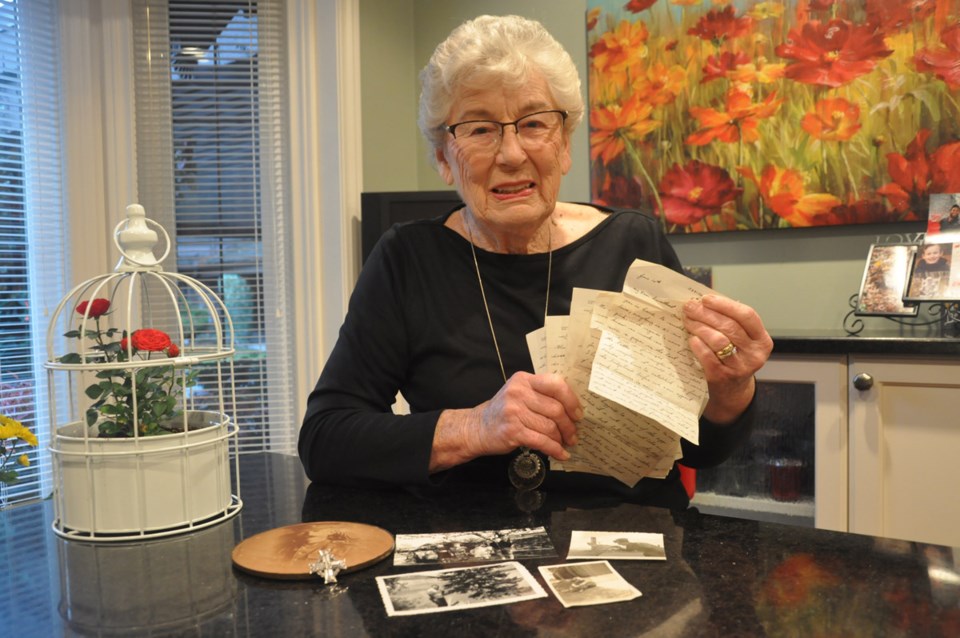Every year when Remembrance Day comes around I wonder what more can we possibly say. Surely, we’ve told all the stories there are to tell, shared all the insights there are to share, pondered all the losses there are to ponder.
And every year I’m wrong.
Perhaps because loss, suffering, courage and conflict are so perennial we never cease to find new ways to understand them or make them relevant.
This year, we owe a big thank you to Matthew McBride, a retired Navy diver, who’s made it his personal mission to ensure we don’t forget those who have paid the ultimate sacrifice. Not only does McBride organize the city’s annual parade and cenotaph ceremony, the amateur historian works doggedly to unearth old war stories and bring them to light.
This year, McBride introduced us to Kathrine (Kay) Vallance, Richmond’s Silver Cross Mother, a former Richmond school teacher and long-time Richmondite.
McBride writes, “I was recently introduced to Kay, who had lately uncovered a very long-lost letter she felt might be of some interest to the community as Remembrance Day approached. Her dad had written to his father (Kay’s grandfather), less than three weeks after he splashed ashore along with the 3rd Canadian Division on Juno Beach, just after dawn on June 6th, 1944.”
In fact, Sgt. Bill Baylis had written numerous letters. The one to his father was intended to be read at the “men’s club” at his church. His more heart-wrenching missives were saved for “Sweetheart,” his wife and Vallance’s mother.
The letters offer vivid descriptions of the boat ride over, the downing of a shot of rum, and the plunging into the waters off of Juno Beach. But it’s what he refused to describe that likely remained most deeply etched in his mind.
“What occurred on the beach, I am going to omit. I pray to God I’ll be able to forget it,” writes Baylis.
Which brings me to this year’s National Silver Cross Mother.
Every year the Royal Canadian Legion chooses a mother to lay a wreath during the Remembrance Day ceremony at the National War Memorial in Ottawa on behalf of all mothers who have lost children in the service of their country.
This year, for the first time, the mother chosen is one whose son, Private Thomas Welch, ended his own life on May 8, 2004, only months after returning home from his Afghanistan tour. She suspects he was suffering with PTSD.
Unlike Welch, Baylis returned home and carried on with his life. But we know images of war are never forgotten. We know they can leave untenable scars, and this has always been the case. Although, when soldiers came home from the First World War with what was then called “shell shock,” families were ashamed by what was commonly thought to be a “lack of moral fibre.” Today, at least one of those families is being honoured. So, perhaps we’ve learned something.
While the end goal is to end war, and that seems like a long way off, every time we pause to remember, we dig a little deeper, understand a little more, see a little clearer.
Learning something may not end war, but it inches us closer.
Letters written by Kay Vallance's father from his wartime stations will be published on Remembrance Day on Sunday, Nov. 11.



